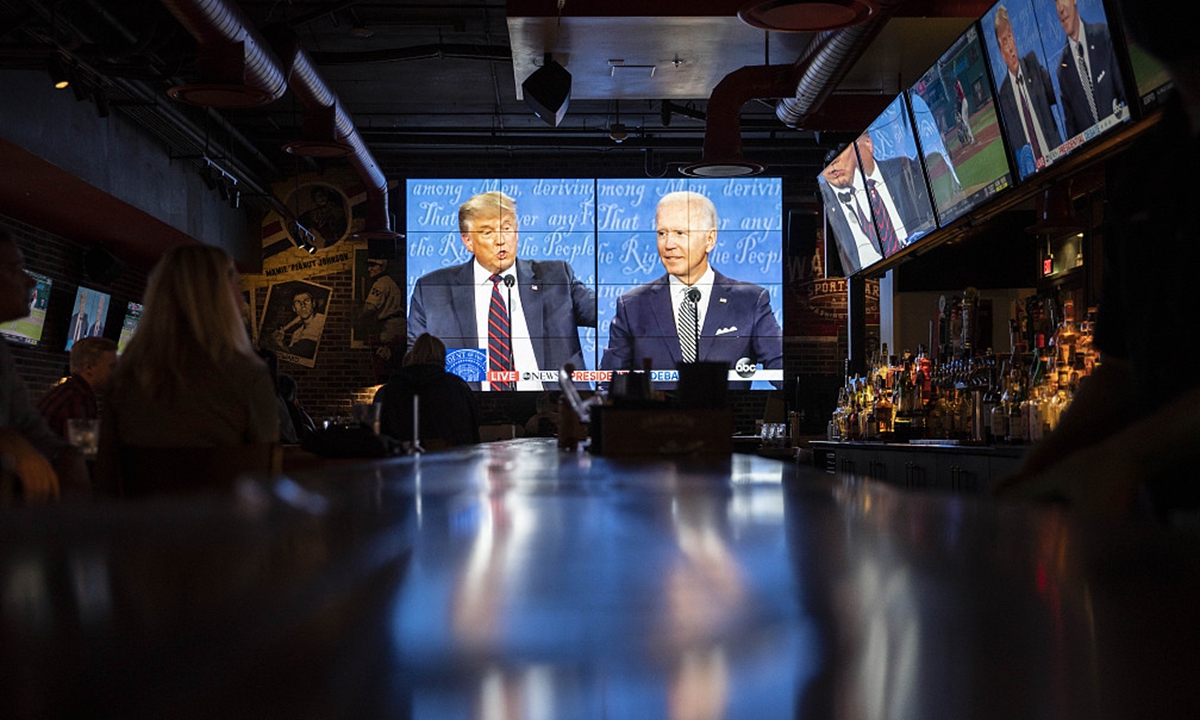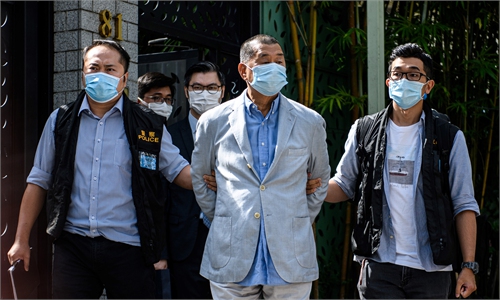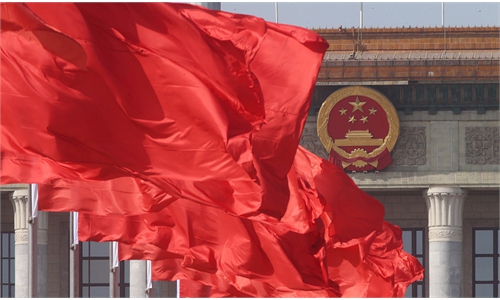
US election debate Photo:VCG
The US presidential election day is scheduled on Tuesday (US time), and it is expected that initial election result may be released on Wednesday afternoon (Beijing time) if everything goes smoothly. But this year, many predictions fear that the result will not come out right away or that the losing party may even refuse to accept the result. This has aggravated the sense of stalemate in this election.
The public outside the US are also quite interested in the election result. But no matter how much they care, the result is not so relevant to their interests. If the election is compared to a gladiatorial event, then the most frantic people in the stands are undoubtedly Americans themselves because they have made different bets. Other foreigners are mostly guests sitting in the VIP seats because their interests are much less relevant to the result. They are watching more for fun.
In Chinese society, more and more people have come to believe that US President Donald Trump's four years in power have indeed brought a huge impact to the China-US relations. But today, the US' new China policy has been shaped at the strategic level and China-US relations will enter a fairly long period of stalemate. The room for their relations to continue to deteriorate is shrinking, yet it is very unlikely that the relations will warm up. The idea that the US election may become a key point in China-US relations is widely regarded as naïve.
Trump has a nickname among Chinese netizens - "Chuan Jianguo," which literally means "Trump builds China." This irony contains a certain degree of helplessness. The more we move forward, when we look back at the impact brought about by the US' drastic changes in its China policy, the more we will believe that such helplessness is exactly the kind of reflection that China needs most - China was forced to go all out for prosperity.
If it were not for the US' suppression, Chinese people may have always built our industries on the basis of American semiconductors, ready to suffer from the "earthquake" manipulated by Washington at any time. Much of our sense of crisis may have been dormant for a long time. Thus, the nickname "Chuan Jianguo" represents an ability we must have to turn crisis into opportunity.
Over the past four years, the US' China policy has awakened China once again. It has made us understand that we may be stuck on key technologies and we must make up for technological shortcomings. It has also convinced us that the US will not accept China's rise and will do everything to suppress China. This is not a risk at all. This is a cold reality.
If China, as a major power, wants to realize its great rejuvenation, it must overcome the US' strategic malice and madness. A peaceful coexistence between China and the US cannot be achieved by China's obedience and tolerance. We must be an invincible force, and then the US may finally accept peaceful competition with China in accordance with rules. In other words, benign cooperation between the two countries can be stabilized only when the US finds that peaceful coexistence with China is its best choice, or the least worst one.
It is clear what the Chinese people should do next. They should stay firm, mobilize the whole of the nation, and make up for the country's high-tech shortcomings one by one against the backdrop of the market economy. They should push the country from basic research to the frontier position of high-tech applications and set up a secure and reliable supply chain. China must march forward one step after another like a wind-up clock.
This is a huge task which can only be accomplished with a series of economic and social reforms. Chinese society not only needs to be united and determined, it also must create mobility and vitality that is able to brew various innovations. So far we have not solved the paradox between unity and flexibility. This is where future difficulties lie, but this is also what we must work hard on.
China's necessary military buildup is urgent. Based on the principle of effective defense, besides establishing military advantages in coastal waters, we must consolidate our strategic deterrence based on nuclear capabilities.
We must make Washington realize that it is facing a China that it should be wary of trifling with, and that treating China as a friend rather than a foe much better fits US national interests.
All in all, US elections are not that important to China. The Chinese people should not count that the US accidentally or suddenly changes its mind. The US attitude toward China should have a bottom line, and the bottom line must be shaped by the Chinese themselves.


